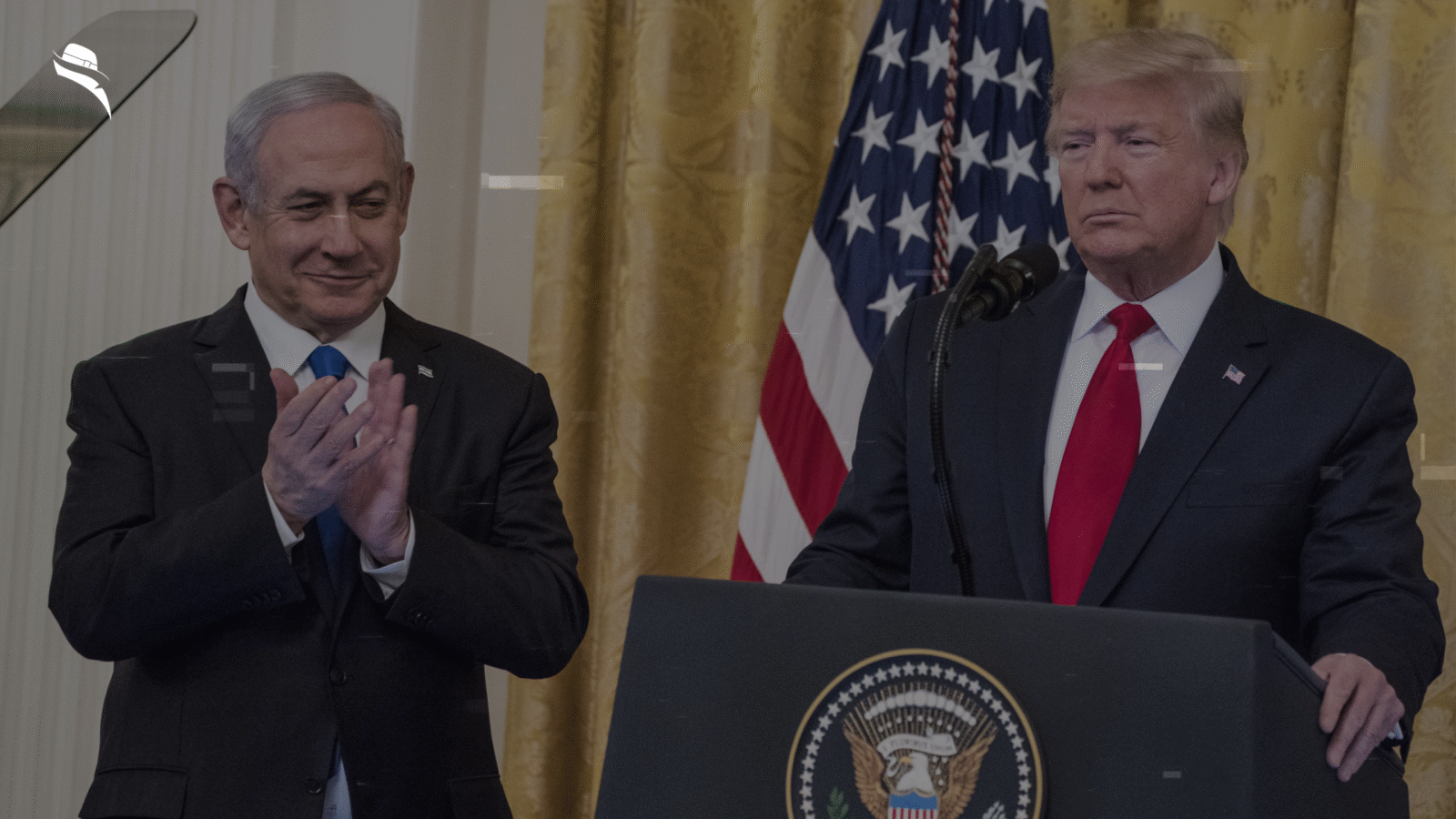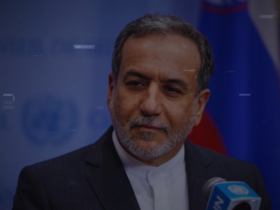Donald Trump says the war in Gaza hurts Israel position in Washington, expressing surprise at the waning influence of what was once considered America’s most powerful lobby. According to the former president, Israel’s standing in Congress has significantly declined over the past two decades, shifting from a position where “no politician could voice even the slightest criticism” to its current diminished state. This transformation represents a remarkable change in Washington’s political landscape.
Recent polls certainly support Trump’s assessment of eroding Americans’ support for Israel. A March Pew Research Center poll revealed that 53 percent of US adults now view Israel unfavorably, up from 42 percent in 2022. Even more striking, a Quinnipiac University poll last week showed that 60% of voters oppose sending additional US military aid to Israel. Despite this decline in public opinion, Trump highlighted his own record on Israel, pointing to his administration’s recognition of Jerusalem as Israel’s capital and the Abraham Accords as evidence of his continued support. However, he acknowledged that the ongoing conflict in Gaza is damaging Israel’s international standing, noting that the country is losing “the world of public relations”.
Donald Trump says the war in Gaza hurts Israel
In a recent Oval Office interview with the Daily Caller, President Donald Trump remarked that Israel’s once-powerful influence in Washington has dramatically diminished. The interview, published Monday, revealed Trump’s assessment of a shifting political landscape where Israel’s standing has weakened considerably.
Trump says Israel no longer controls Congress
President Trump stated plainly that Israel’s grip on Congress has loosened substantially compared to previous decades. “Israel was the strongest lobby I’ve ever seen. They had total control over Congress, and now they don’t,” Trump told the Daily Caller. This statement came in response to questions about recent polling showing declining support for Israel among Americans. The March Pew Research Center poll indicated that 53% of US adults now view Israel unfavorably, up from 42% in 2022.
He recalls the past dominance of the pro-Israel lobby
Trump emphasized the historical strength of Israel’s influence, noting, “If you go back 20 years, Israel had the strongest lobby in Congress of anything or body, or of any company or corporation or state that I’ve ever seen”. He further recalled that criticizing Israel was once politically unthinkable: “There was a time when you couldn’t speak badly, if you wanted to be a politician, you couldn’t speak badly”. This observation highlights the dramatic transformation in Washington’s political discourse regarding Israel.
He expresses surprise at the shift
Perhaps most notably, Trump admitted being taken aback by this change. “Today, it doesn’t have that strong a lobby. It’s amazing,” he remarked. He attributed part of this shift to progressive lawmakers, specifically mentioning “AOC plus three,” who have openly criticized Israel’s actions in Gaza. Additionally, Trump pointed to the generational divide within his own party, as the Pew poll showed unfavorable views among Republicans under 50 rising from 35% to 50% between 2022 and 2025.
Throughout the interview, Trump maintained that Israel is “winning the war, but they’re not winning the world of public relations”.
Progressive Lawmakers Challenge Pro-Israel Consensus
Progressive lawmakers are at the forefront of a significant shift in the Democratic Party’s relationship with Israel. This transformation has not gone unnoticed by former President Trump, who points to these changes as evidence of Israel’s diminishing influence in Washington.
AOC and ‘The Squad’ criticized for anti-Israel stance
Members of “The Squad,” including Representatives Alexandria Ocasio-Cortez, Ilhan Omar, and Rashida Tlaib, have faced intense criticism for their positions on Israel. Omar explicitly called Israel’s actions in Gaza a “genocide”, while she and Tlaib voted for amendments to cut funding for Israel’s Iron Dome defense system. Although Ocasio-Cortez opposed cutting Iron Dome funding, she nevertheless voted against the overall defense bill. Consequently, pro-Israel groups like AIPAC have spent heavily to defeat Squad members, investing nearly USD 24.70 million across primaries involving these lawmakers. Indeed, this strategy proved effective when two Squad members—Jamaal Bowman and Cori Bush—lost their primaries earlier this year.
Trump says criticism of Israel was once taboo
Former President Trump emphasized that criticizing Israel was previously unthinkable for politicians. “There was a time when you couldn’t speak badly; if you wanted to be a politician, you couldn’t speak badly,” he remarked about Israel’s formerly untouchable status. Yet now, he observes criticism coming openly from elected officials, particularly from progressive Democrats.
Democratic voices reshape the narrative
The shift extends beyond just The Squad. Democratic support for Israel has plummeted, with merely 8% of Democrats approving of Israel’s military actions in Gaza. Furthermore, mainstream Democrats like Senators Van Hollen and Ossoff have begun criticizing aspects of Israel’s war conduct. Meanwhile, progressive Jewish lawmakers such as Jamie Raskin and Becca Balint are attempting to navigate a middle path, facing pressure from both sides. This transformation reflects broader generational changes, as young Democrats express greater sympathy for Palestinians.
Public Opinion Shifts Against Israel Amid Gaza War
Recent polling reveals a dramatic erosion of American support for Israel since the Gaza conflict began. A July 2025 Gallup poll shows approval of Israel’s military action in Gaza has plummeted to 32%, with disapproval reaching 60%. Likewise, a Quinnipiac University survey found 60% of voters oppose sending additional US military aid to Israel. This shift represents a marked reversal from October 2023, when 50% of Americans initially supported Israel’s military response.
Polls show rising disapproval among Americans
Support has collapsed along partisan lines. Only 8% of Democrats now approve of Israel’s actions, down from 36% initially. Half of Americans (50%) believe Israel is committing genocide against Palestinians. Moreover, confidence in Israeli Prime Minister Benjamin Netanyahu remains low at 32%.
Young Republicans are increasingly skeptical
Strikingly, Republicans under 50 have shifted from 63% favorable toward Israel in 2022 to an even split (48% positive, 50% negative). As one young Republican stated, “To be ‘America First,’ the Stars and Stripes must come before the Star of David”. This generational divide emerged clearly when 31% of Republicans aged 18-49 felt the US was too supportive of Israel, versus only 7% of those over 50.
Gaza war seen as PR disaster for Israel
President Trump remarked that Israel “may be winning the war, but they’re not winning the world of public relations”. He repeatedly urged Israel to “get that war over with,” as it damages their standing.
Trump compares the October 7 denial to Holocaust denial
In fact, Trump likened dismissals of the October 7 attacks to Holocaust denial: “You have Holocaust deniers. Now you have Oct. 7 deniers, and it just happened”.
Trump Defends Israel While Criticizing Its Critics
Despite criticizing Israel’s current approach to the Gaza conflict, former President Donald Trump frequently highlights his strong pro-Israel record. Throughout his administration, Trump cultivated an image as Israel’s staunchest ally in Washington.
Trump cites his record: Jerusalem, Iran, Abraham Accords
Throughout recent interviews, Trump has repeatedly pointed to his administration’s landmark decisions supporting Israel. “No one has done more than I for Israel,” Trump declared, referencing his recognition of Jerusalem as Israel’s capital and moving the U.S. embassy from Tel Aviv. Trump also emphasized his withdrawal from the Iran nuclear deal and brokering of the Abraham Accords, which established diplomatic relations between Israel and three Arab states. Netanyahu himself praised these accords as “breakthroughs” that had “reshaped the Middle East”.
He blames the media and left-wing politicians
Trump has consistently faulted the American media and progressive politicians for Israel’s declining support. He suggested that Democrats have embraced antisemitism “in a way Republicans have not”. Trump claimed the “anti-Jewish hatred has returned even here in America, in our streets, our media and our college campuses, and within the ranks of the Democrat Party”.
He warns that Israel must end the war to regain support
In direct communication with Netanyahu, Trump urged Israel to “end the war in Gaza and stop talk of an attack on Iran”. He expressed concern about the humanitarian situation, noting “between the hunger and all the other problems — worse than hunger, death, pure death, people being killed”. Trump repeatedly stated that Israel is “losing the PR war” and must “finish what they started, and they’ve got to finish it fast”.
Explore more in our Israel–Palestine Conflict category for in-depth analysis and the latest updates on this ongoing issue.
Final Thoughts
The ongoing conflict in Gaza has fundamentally altered the political calculus surrounding Israel in American politics. As Israel continues its military operations, the once-solid bipartisan consensus supporting the Jewish state appears increasingly fractured. This realignment extends beyond traditional partisan divides, with significant segments of both Democratic and Republican voters reassessing their positions.
Trump’s observations highlight a striking historical shift. For decades, supporting Israel represented a political necessity in Washington. Today, that dynamic has changed dramatically. The former president’s surprise at this transformation underscores just how profound these changes are within American political discourse.
Looking ahead, several factors will likely determine Israel’s future standing in Washington: the duration of the Gaza conflict, civilian casualties, and Israel’s response to international humanitarian concerns. The political ramifications extend beyond foreign policy considerations into domestic electoral politics, as evidenced by progressives’ growing electoral strength and changing attitudes among young conservatives.
Trump’s dual stance—criticizing Israel’s current approach while defending its right to exist—reflects the complex balancing act many politicians now face when addressing the conflict. His insistence that Israel must quickly conclude military operations acknowledges the practical reality that prolonged warfare directly threatens Israel’s diplomatic capital, both in Washington and globally.







Leave a Reply